When we log onto the internet, however, anyone with a keyboard and an opinion can feel free to spout whatever medical misinformation they like, so we should take everything we read online with a grain of salt. Thankfully, there is one page that’s dedicated to calling out irresponsible and inaccurate medical advice that’s shared online: the Bad Medical Takes Twitter account.
We’ve gathered some of the most ridiculous, hilarious and alarming posts Bad Medical Takes has shared down below, so you too can enjoy hearing all of the wacky ideas ignorant people felt the need to share online. Be sure to upvote the claims you wish were posted satirically, and then let us know in the comments what the worst medical advice you’ve ever received was. And then if you’re interested in another Bored Panda article featuring medical takes that are definitely not doctor approved, you can find our last story on the same Twitter account right here.
#1

Image credits: BadMedicalTakes
#2
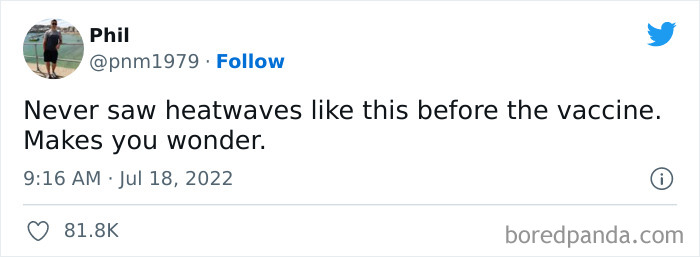
Image credits: BadMedicalTakes
#3

Image credits: BadMedicalTakes
The Bad Medical Takes Twitter account initially launched in March 2020, which I can only assume came in response to all of the misinformation that was rapidly being spread about the COVID-19 virus. When the pandemic began, everyone on the internet suddenly turned into a medical professional, and with billions of desperate people around the world searching for hope and answers, false claims spread like wildfire.
But I can’t put all of the blame for bad medical advice running rampant online on the pandemic. The internet has been saturated with fake news long before 2020, so it only made sense for medical advice to make its way into the same category. But the difference between reading fake news about a politician and being told to shoot bleach into your veins is that the latter is extremely dangerous. So false medical claims deserve to be called out and shut down even more than your run-of-the-mill fake news.
#4
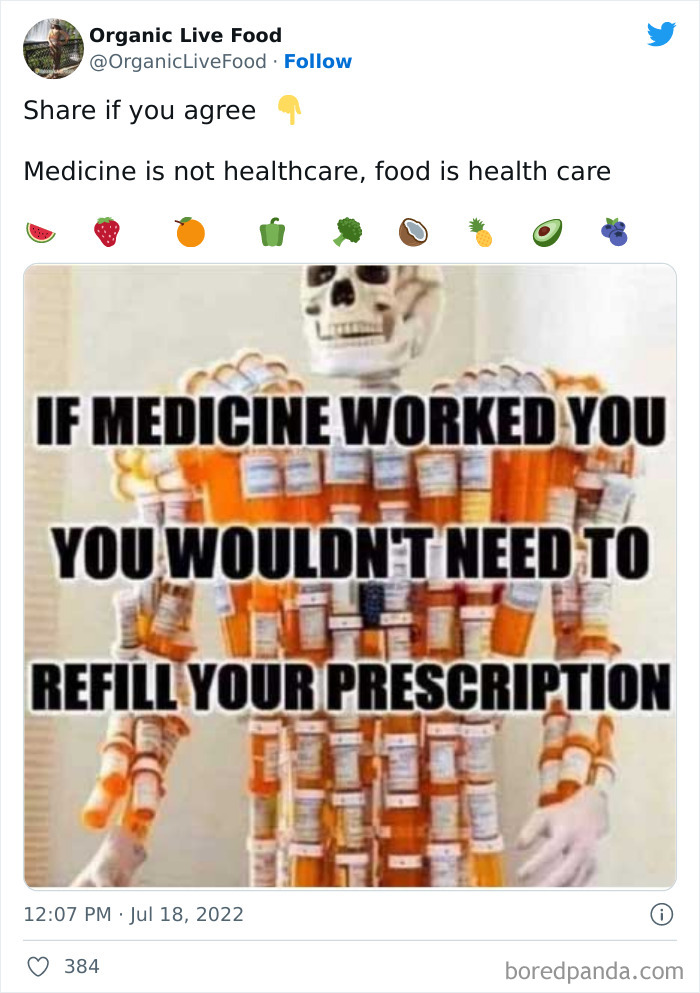
Image credits: BadMedicalTakes
#5

Image credits: BadMedicalTakes
#6
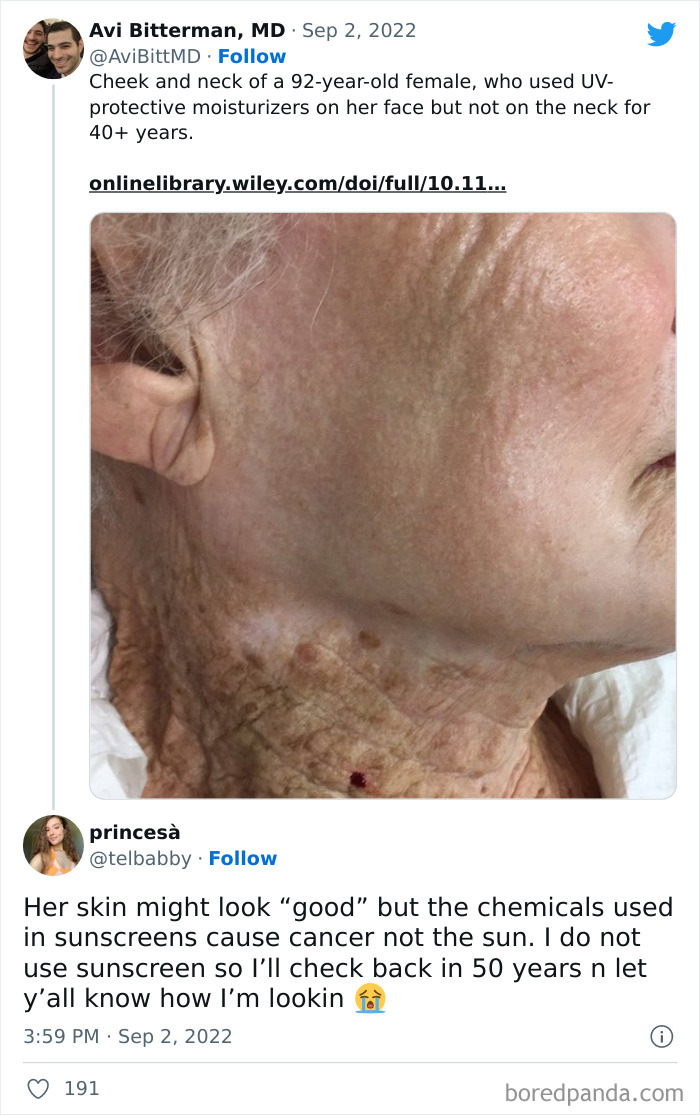
Image credits: BadMedicalTakes
You might be wondering how anyone in the world could possibly believe the claims shared on this list in the first place, and I’ll be honest, I’m wondering too. So to try to gain some insight on the topic, I consulted an article from Medical News Today exploring just how these false claims are perceived as credible information. And it turns out that there are certain factors that can cause a person to be more or less susceptible to believing medical misinformation.
One 2021 study found that people with a lower education level and individuals who have less knowledge of healthcare issues are more likely to believe inaccurate medical claims. Also, people who have a lack of trust in the healthcare system are more inclined to view alternative treatments positively and more likely to believe false medical claims. The study also found that participants who believed one false medical claim were likely to fall for even more as well, so perhaps they are just more gullible than the average person.
#7
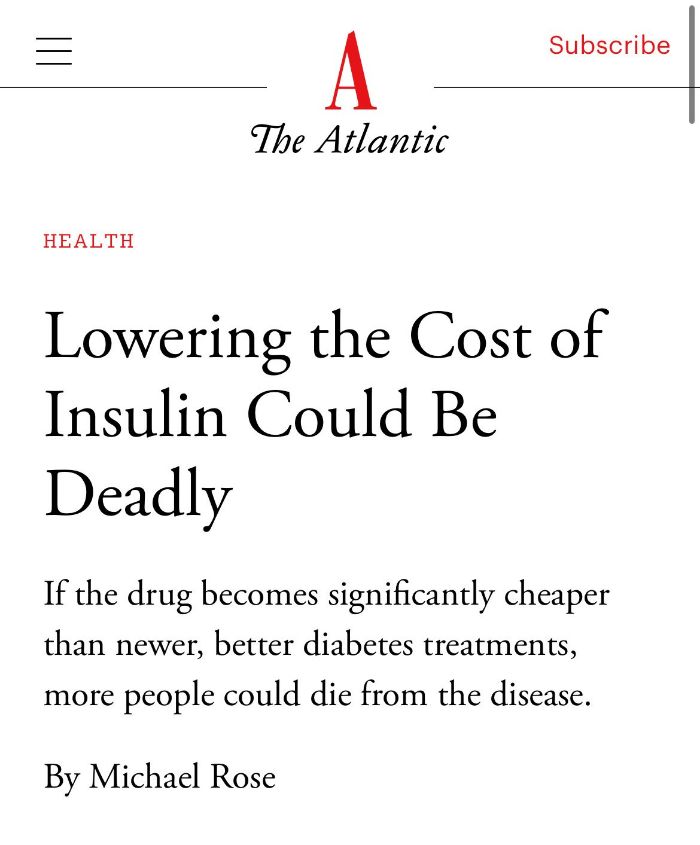
Image credits: BadMedicalTakes
#8

Image credits: BadMedicalTakes
#9
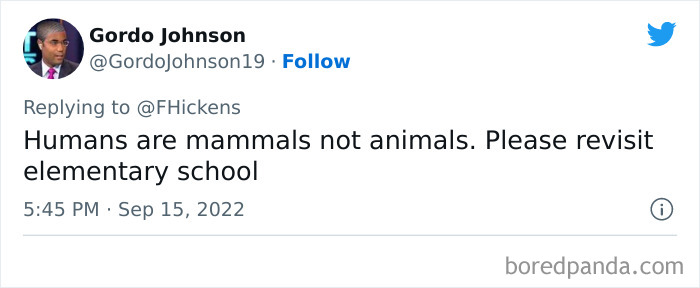
Image credits: BadMedicalTakes
Lead author of the study, Dr. Laura D. Scherer of the University of Colorado School of Medicine shed some light on the value of this study’s findings. “Inaccurate information is a barrier to good healthcare because it can discourage people from taking preventive measures to head off illness and make them hesitant to seek care when they get sick,” she explained. “Identifying who is most susceptible to misinformation might lend considerable insight into how such information spreads and provide us with new avenues for intervention.”
#10

Image credits: BadMedicalTakes
#11
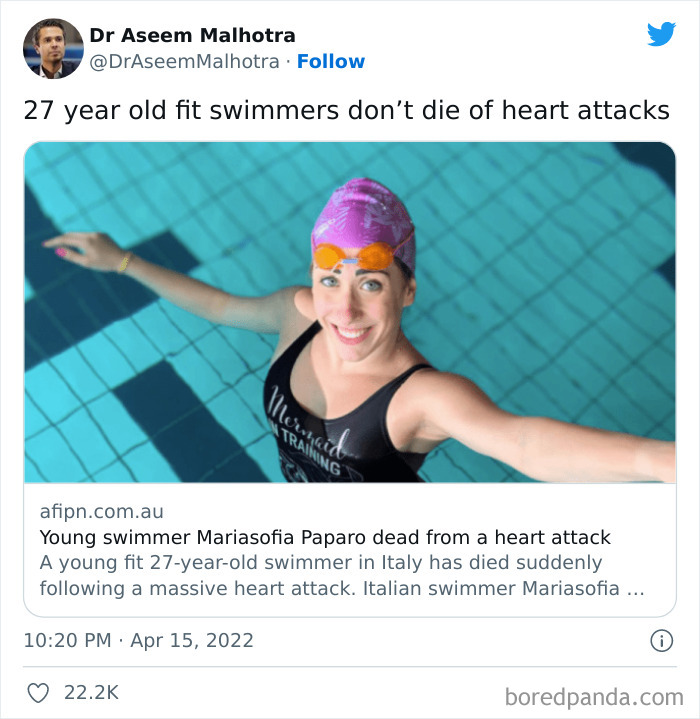
Image credits: BadMedicalTakes
#12
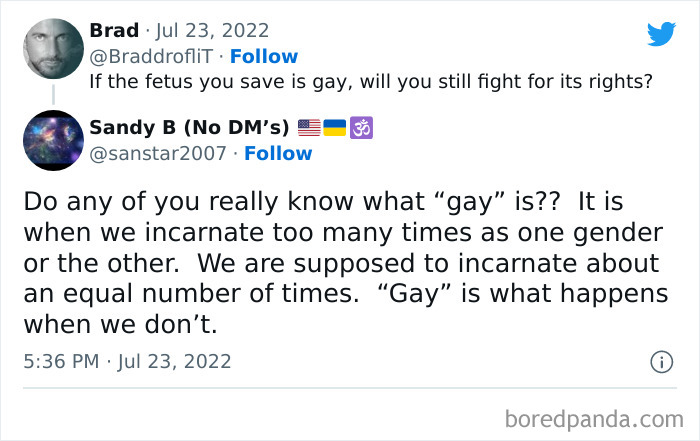
Image credits: BadMedicalTakes
One of the most notable factors contributing to the spread of medical misinformation online is distrust in the healthcare system, and it might be becoming worse and worse over time. One survey reported that between 2017 and 2018, there was a 20% drop in the amount of trust the American public holds in their healthcare system. And globally, there was a 4% decrease in citizens’ trust in their healthcare systems. When people don’t trust the professionals, they start seeking outside, unverified information, which is likely informed by their own views and biases.
“We have witnessed a concerning shift over the last several decades where policy decisions seem to be driven by ideology and politics instead of facts and evidence,” American Medical Association president Dr. Patrice A. Harris said during a national address. “The result is a growing mistrust in American institutions — in science — and in the counsel of leading experts who dedicate their lives to the pursuit of evidence and reason.”
#13

Image credits: BadMedicalTakes
#14

Image credits: BadMedicalTakes
#15

Image credits: BadMedicalTakes
Another factor that might be exacerbating the issue of false medical claims online is the appetite that social media platforms have for fake news. While social media can be great a tool for sharing news and awareness of social issues, it can also be extremely hard to fact check what is being spread, and the more outlandish a claim is, the faster it will be circulated. In fact, one 2021 study from the NYU School of Global Health found that people who were primarily or exclusively using social media to track pandemic-related information were less likely to be practicing the most up-to-date public health safety practices. And another study from GoodRx found that being exposed to false medical claims online can negatively affect a patient’s health literacy.
#16
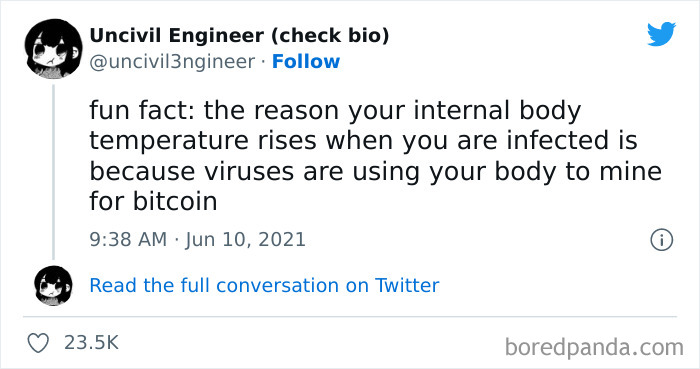
Image credits: BadMedicalTakes
#17
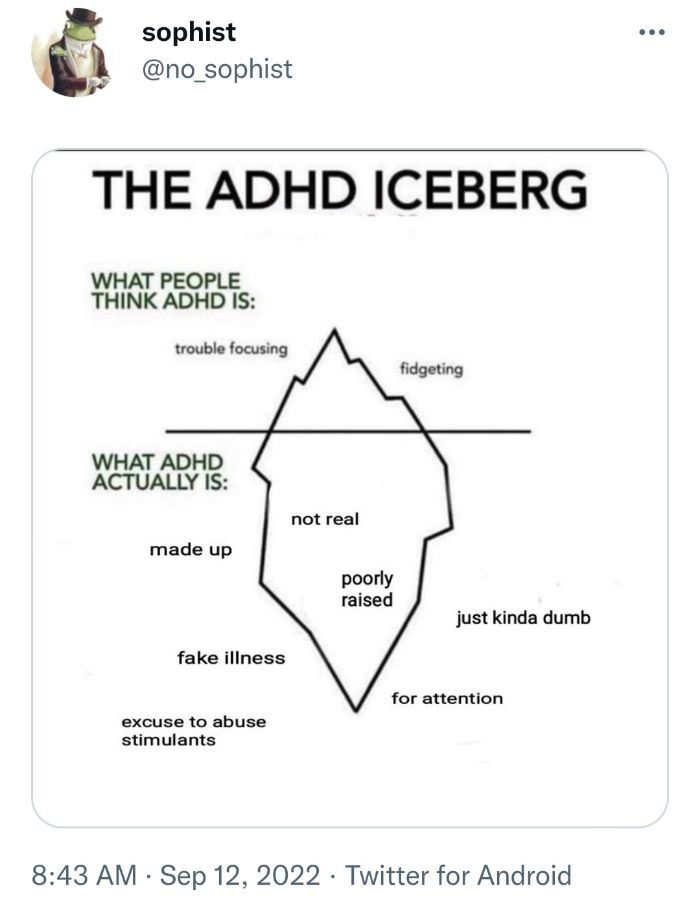
Image credits: BadMedicalTakes
#18
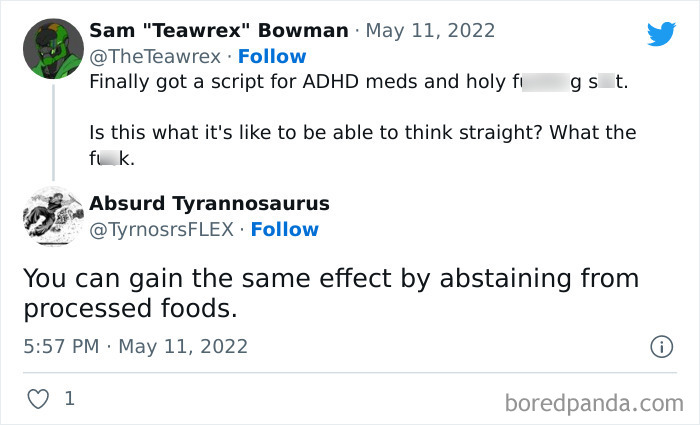
Image credits: BadMedicalTakes
Inaccurate medical information being circulated online is not only relating to COVID-19 and the vaccines being used to prevent it. Users might find misinformation about anything from smoking and drug use to claims about other vaccines, like the HPV vaccine, causing various health issues. Thankfully, many users don’t actually trust the claims they see, as only 6% of people said they trust information about COVID on social media sites in one survey, but it is still concerning how rapidly these claims spread. In fact, medical misinformation sometimes makes it to 87% of users’ feeds on social media sites. Even if only 5% of these people believe the claims, that could lead to devastating consequences.
#19

Image credits: BadMedicalTakes
#20
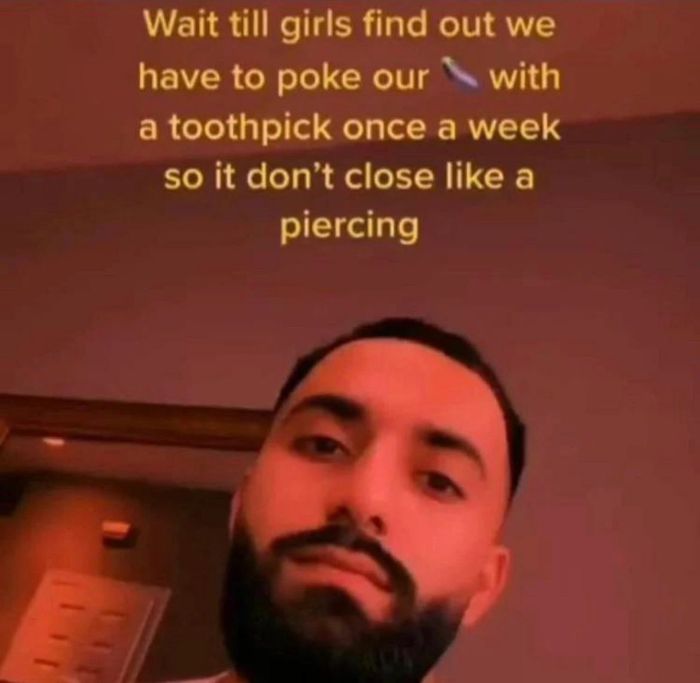
Image credits: BadMedicalTakes
#21
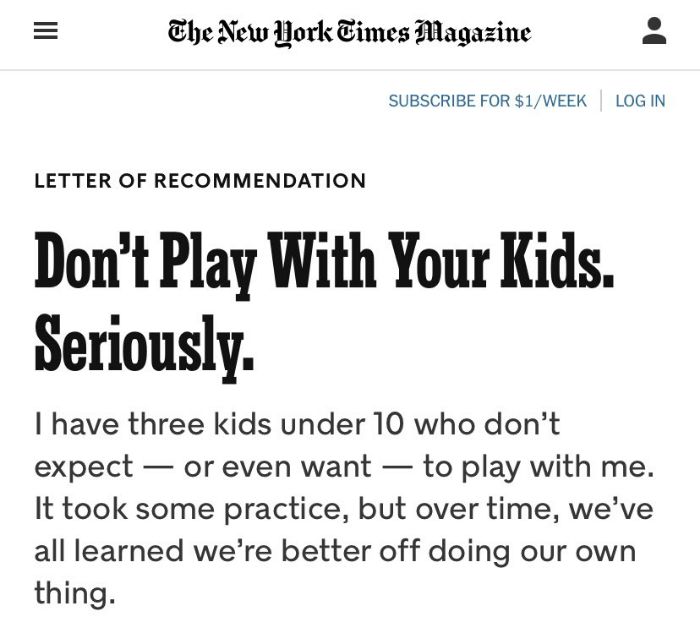
Image credits: BadMedicalTakes
So what are public health agencies supposed to do to limit the spread of false claims online? Is it their responsibility to monitor social media? Well, it’s a delicate issue. “Social media can also be volatile: false information, sometimes maliciously created, spreads rapidly,” the Frontiers in Public Health authors wrote. “Thus, measures to counter misinformation and disinformation on social media channels during an emergency are necessary. Given that government censorship can deeply aggravate already existing mistrust, measures other than content removal is needed, as the public shares and reacts positively to factual information, especially if posted by public health agencies.”
#22
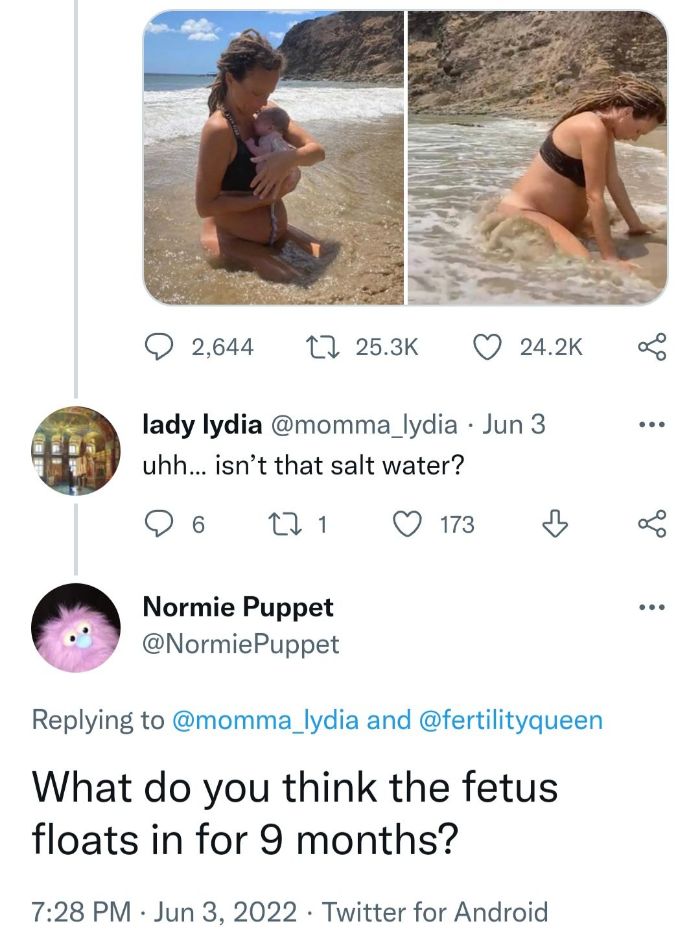
Image credits: BadMedicalTakes
#23
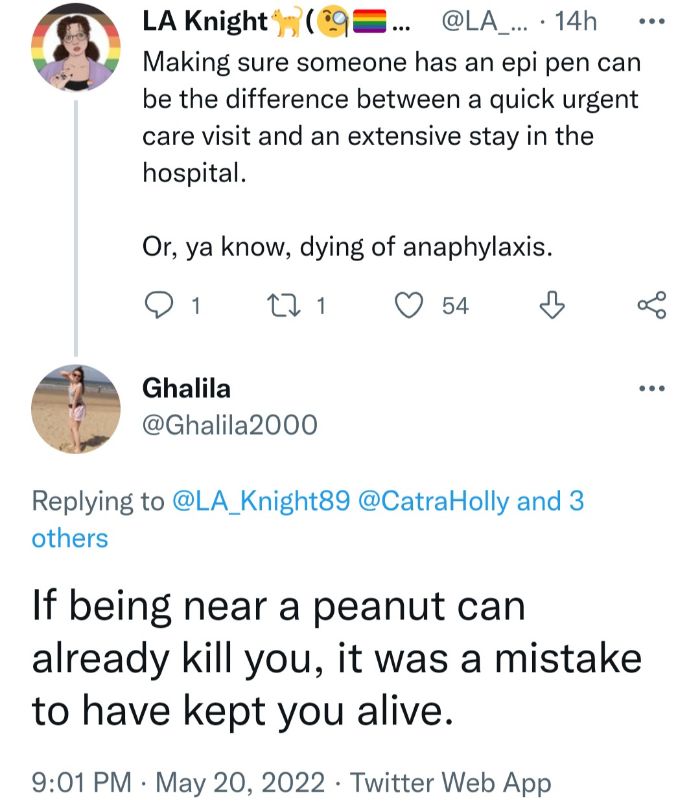
Image credits: BadMedicalTakes
#24

Image credits: BadMedicalTakes
In 2021, US Surgeon General Dr. Vivek Murthy issued an advisory on medical misinformation, calling for actual healthcare professionals to use their own social media platforms to cut through the false claims and spread truth online. He also asked that healthcare agencies partner with trusted community members like church leaders and clinicians to make sure that the public hears accurate information from people they trust. He also noted that this issue cannot be solved overnight. Combatting medical misinformation online will be a long-term effort, so hopefully, over time, the public’s health literacy will be increased. And false claims online will become a thing of the past.
#25
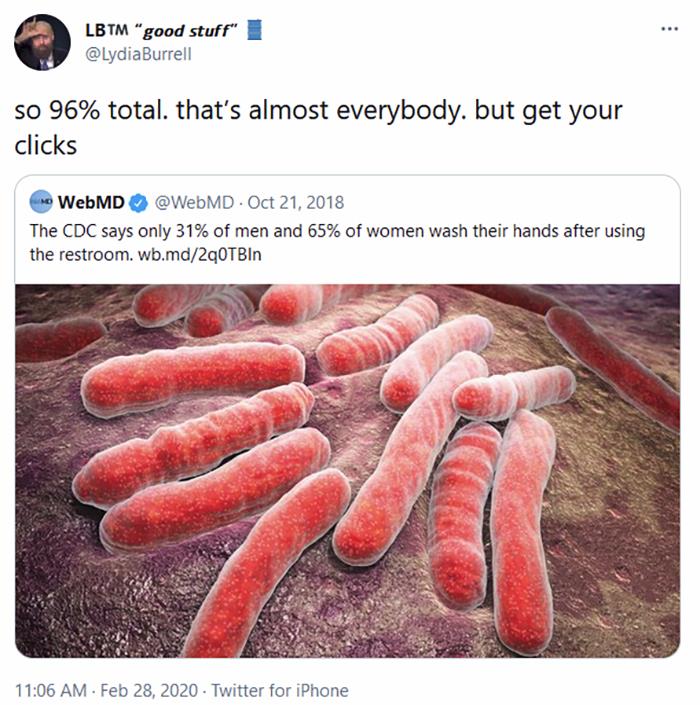
Image credits: BadMedicalTakes
#26
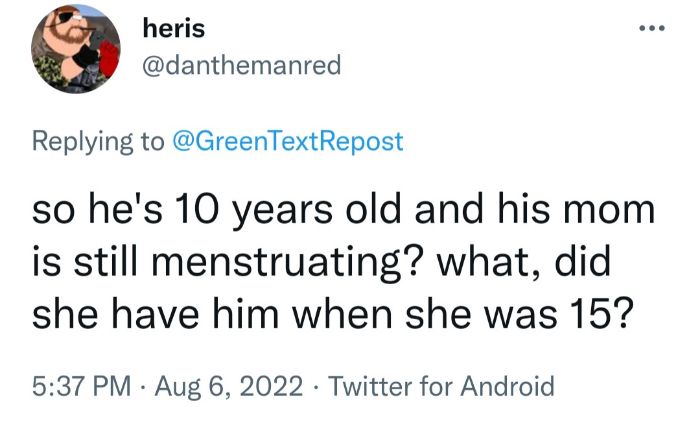
Image credits: BadMedicalTakes
#27
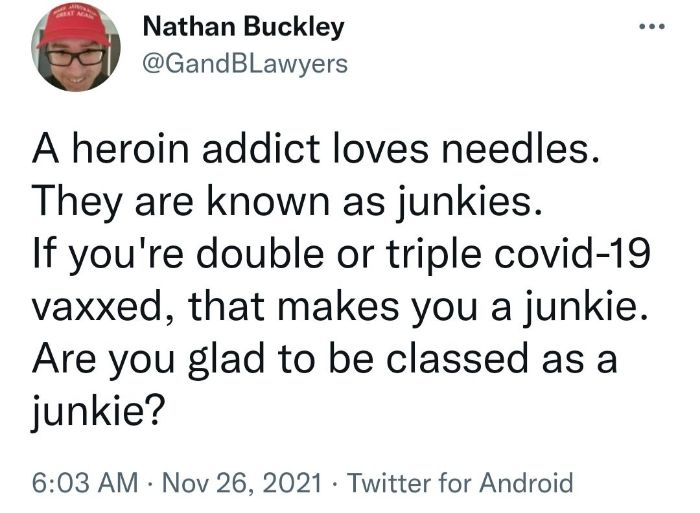
Image credits: BadMedicalTakes
If you're not in the medical field, I hope you are getting a kick out of these ridiculous claims, and if you are a healthcare professional, I just want to apologize on behalf of the general public. I promise we don't all think this way. Keep upvoting the posts that you find most hilarious and facepalm-worthy, and then let us know in the comments what the worst medical take you've ever heard was. And if you're interested in laughing at even more horrible medical advice, don't forget to check out our last article on the same topic right here.
#28

Image credits: BadMedicalTakes
#29
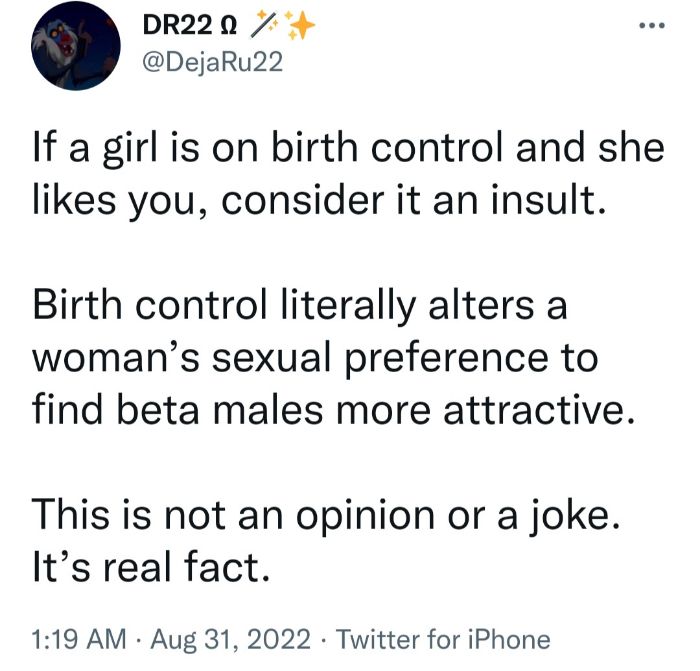
Image credits: BadMedicalTakes
#30

Image credits: BadMedicalTakes
#31
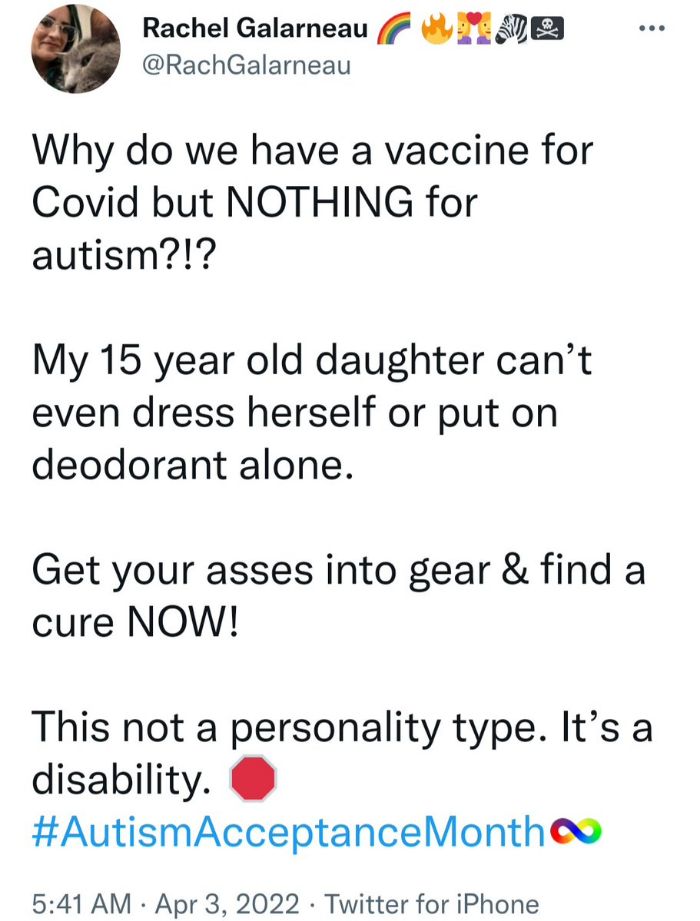
Image credits: BadMedicalTakes
#32

Image credits: BadMedicalTakes
#33

Image credits: BadMedicalTakes
#34
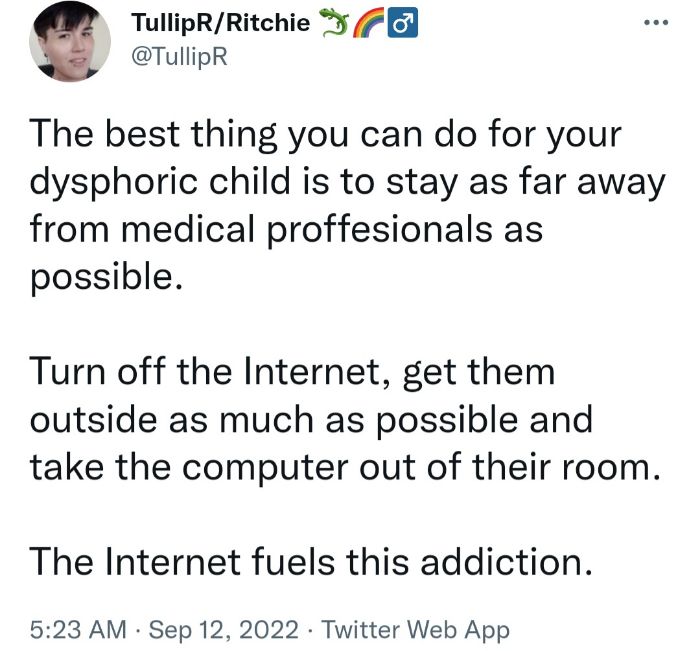
Image credits: BadMedicalTakes
#35
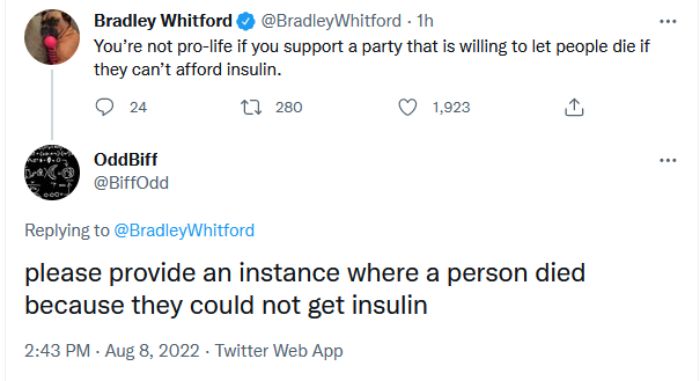
Image credits: BadMedicalTakes
#36

Image credits: BadMedicalTakes
#37

Image credits: BadMedicalTakes
#38

Image credits: BadMedicalTakes
#39
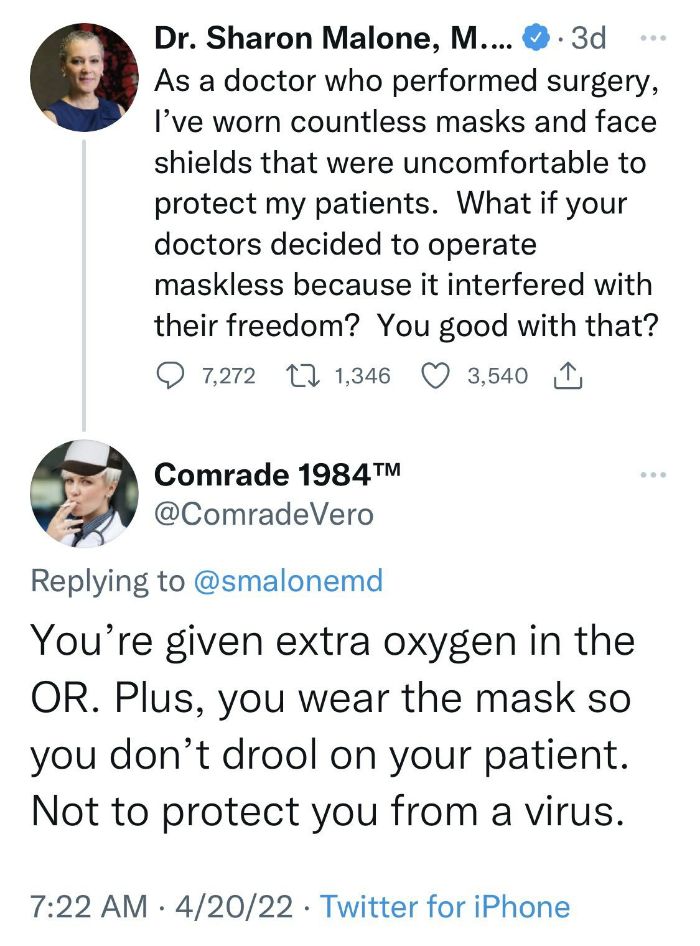
Image credits: BadMedicalTakes
#40

Image credits: BadMedicalTakes
#41
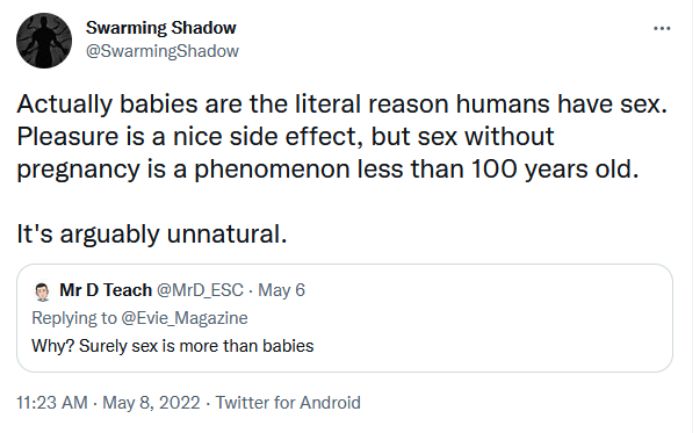
Image credits: BadMedicalTakes
#42

Image credits: BadMedicalTakes
#43
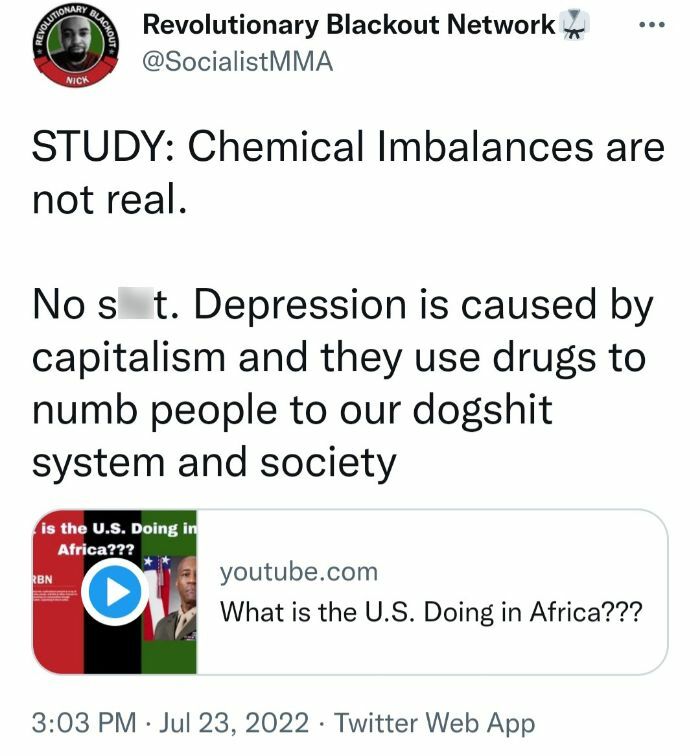
Image credits: BadMedicalTakes
#44

Image credits: BadMedicalTakes
#45

Image credits: BadMedicalTakes
#46
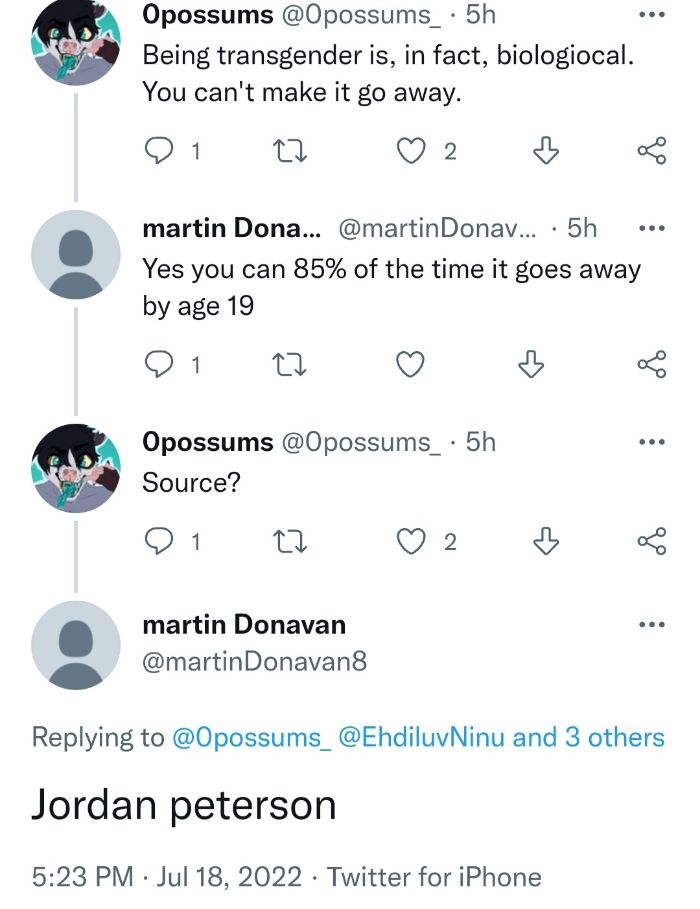
Image credits: BadMedicalTakes
from Bored Panda https://ift.tt/eFd5T9K

